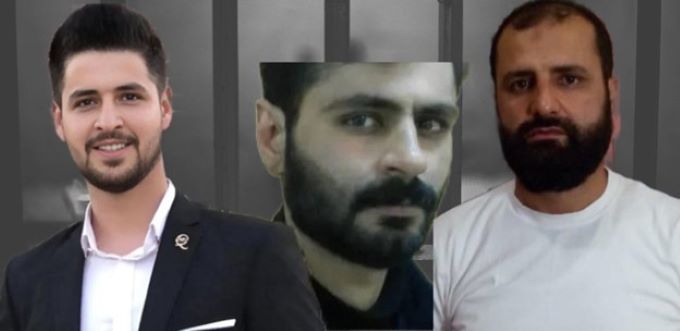
On the morning of 23 January 2024, two political prisoners were hanged following orders from the Revolutionary Court in Iran. Mohammad Ghobadlou, aged 23, and Farhad Salimi, a Kurdish religious prisoner, were both executed today at dawn, facing various charges, including "waging war against God" or Moharebeh, "actions against national security," "propaganda against the regime," and "corruption on earth," respectively.
Mohammad Ghobadlou, initially sentenced to death in November 2022, was executed for his involvement in the Woman Life Freedom protests and falsely accused of driving into a crowd, resulting in the death of a police officer and injuries to others in 2022. His request to choose his own lawyer was rejected twice by the court, and an attorney from the judiciary's counselling centre was appointed for his case, with no access to his documents until his first court hearing. His lawyer, Amir Raisian, was only informed at 5pm on Monday 22nd of January, after office hours, of his death sentence scheduled to be carried out on the 23rd. Ghobadlou's mother reported that he suffered from bipolar disorder and was deprived of medication while held in prison. He was transferred to solitary confinement on 9 January 2024, in Rajai Shahr prison, located on the outskirts of the city of Karaj, Iran.
Farhad Salimi, a Kurdish religious prisoner, was executed in Ghezel Hesar prison after 14 years of imprisonment, while his co-accused Davud Abdollahi, Qasim Abeste, and Ayoub Karimi were also executed in the past two months. Salimi spent fourteen years in prison without the right to leave, and his family was also denied a final meeting. Although the family was instructed to return for a last visit today, they were informed that his sentence had been carried out. Salimi initiated a hunger strike on Saturday, 30th December 2023, as a protest against the execution of his fellow prisoner, Davud Abdollahi. Like Ghobadlou, Salimi was sentenced to death by Judge Abolqasem Salavati, the infamous "death-penalty judge" at the Revolutionary Court.
Amidst the recent executions today, growing concerns have gripped Iranians as another political prisoner, Mehdi Mousavian, arrested on 31st December 2017, faces allegations of throwing a stone at a policeman during a protest in Farokhshahr, Chaharmahal and Bakhtiari province, allegedly blinding him in the left eye. Mousavian denied all charges brought against him, including qisas (retribution in kind), during his court hearing on 27 January 2019. The policeman demanded diya (blood money) of $270K, which Mehdi's family cannot afford, so now he has requested retribution as Mehdi is set to be blinded in the left eye in the upcoming days.
According to Iranian government law, an annual indicative amount for "blood money" is established, taking into account factors such as inflation. However, in cases falling under qisas, individuals can determine their own desired compensation without a specified upper limit. This situation poses a significant risk to prisoners, potentially subjecting them to harm or even death, as exemplified in recent executions such as Mohammad Ghobadlou's case. Disturbingly, more than 800 executions have been reported by various local NGOs in Iran, affecting a diverse range of individuals, including political prisoners, women, and children. Shockingly, there have been 51 executions recorded since the beginning of January 2024.
Under human rights violations set by international law, the Iranian government utilises ruthless laws of retaliation, with verdicts often issued in unfair trials, to suppress protesters and opponents, many facing accusations of involvement with illegal security agencies and torture. Geneva International Centre for Justice (GICJ) strongly condemns the heavy use of the death penalty in Iran against protestors and opponents to the government. The judges and individuals involved in cases of torture and execution of prisoners should not only be investigated and sanctioned, but brought to trial under international law. The international community should pressure Iran to abolish the excessive use of capital punishment and uphold fair trials. Our concern arises due to the fact that there are more innocent people on the death row, those people were wrongfully accused by the Revolutionary Court of Iran without any legal basis.




